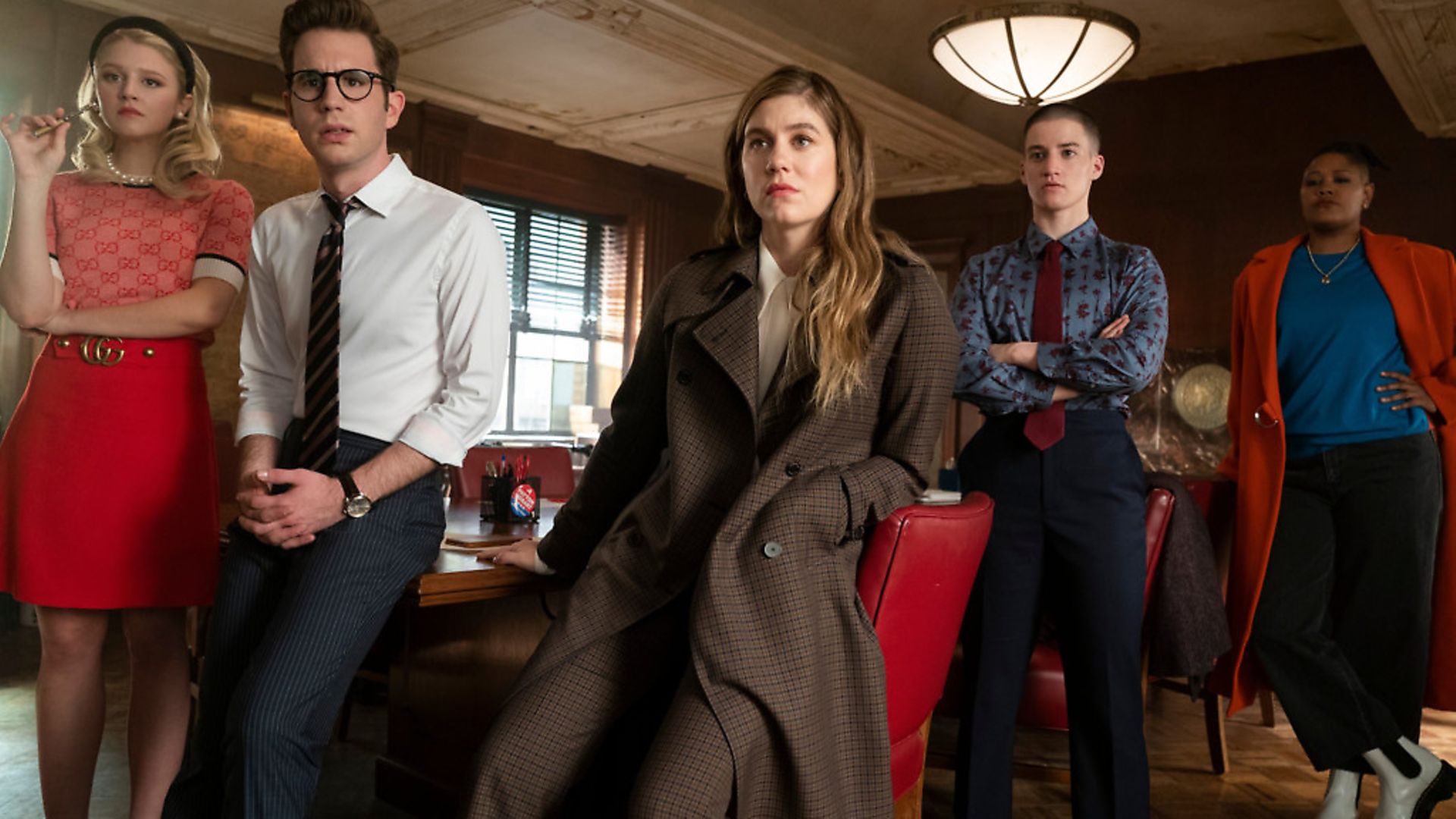
Glen O’Hara suggests the ‘woke wave’ sweeping through society is not as high as many people might think.
If you listened to the more panicked accounts coming out of university campuses, you would be forgiven for wondering what on earth is going on. Attacks on free speech; purity tests; the politics of identity; no-platforming; Stalinist hashtags; passionate attacks on such noted right-wing figures as… Keir Starmer.
This is the ‘woke revolution’ of conservative lore. It is usually painted in lurid tones, as an insistence on the politics of individual and group actualisation above all else, on how young people feel and want to be: fluid, self-defined, multiply-named, full of love in the abstract but curiously extremely angry when they come to enforce it all.
It sounds like Arthur Miller’s play The Crucible, a thinly veiled attack on 1950s McCarthyism and ultra-puritan paranoia. And it would be very worrying, if it were the whole story – or anything like the whole story.
There is no doubt that young people’s views lean to the left. Consider polling on that cause celebre of recent weeks, the toppling of Edward Colston’s statute in the centre of Bristol. YouGov figures tell us that 35% of 18- to 24-year olds approved of both the statue’s removal and the manner in which it was torn down (a mere 4% of over-65s thought the same).
Even so, nearly as many young people (33%) agreed the statue should be removed, but still disapproved of pulling it over and throwing it in the harbour – a view they shared with a plurality (40%) of the whole population. It hardly reeks of an unvariegated thirst for revolution.
Although younger voters are far more likely than the rest of the population to support Labour, their specific views are in fact not vastly more radical than anyone else’s – which in some ways is quite a shock, given the way that the under-30s have been comprehensively short-changed by the economic headwinds that characterise their early working life.
Young people are unlikely to ever buy a property if they live in London and the south east, or indeed in any of the more supposedly fashionable property hotspots in which many of their universities sit. A private pension and stable salary look fairly unlikely.
More than anybody else, they feel disenfranchised: 40% of them thought that their vote did not count in the recent general election, while the Prince’s Trust has just reported that 47% of them don’t feel in charge of their own lives.

Even given all those challenges, the admittedly small and unweighted crossbreaks on YouGov’s 2019 election polling showed that 18- to 24-year olds were less likely to think taxes should rise on high earners than older Britons; they were less likely, not more likely, to support nationalisation; and they were not very much more likely even to support wealth taxes.
Most young people can much better be described as very relaxed about social issues, and highly libertarian. The views of Britons under 30 as a collective look rather unlike people who might join a collective.
The ‘woke’ term has now become a meaningless boo word anyway. If global brands such as Nike can be woke, it’s pretty clear that anything and nothing is.
Pushing the word out into aggressive contrarian battle is likely to make the gulf between youth and middling age even wider, and to push radicalism further along its lines of furious least resistance. It is probably better to walk a couple of miles in other people’s shoes.
Have your say
Send your letters for publication to The New European by emailing letters@theneweuropean.co.uk and pick up an edition each Thursday for more comment and analysis. Find your nearest stockist here or subscribe to a print or digital edition for just £13. You can also join our readers' Facebook group to keep the discussion and debate going with thousands of fellow pro-Europeans.
There is a revealing episode of the (very funny) Netflix series The Politician, the second season of which is just out, which focuses on some oft-neglected and usually-caricatured people: it’s entitled ‘The Voters’.
In that episode, and via actual contact with their favoured candidates, a mother and daughter come to see the flaws of both the Boomer Progressive and the Millennial Radical candidates for the New York state senate: although it’s true that the programme is heavily laced with irony and some foreboding, the series shows them reconciling over the contradictions and absurdities of both.
In reality, most parents and children will rub along. In truth, today’s ultra-radicals will become tomorrow’s reformers. In the past, universities have formed the vanguard of change that is difficult, but is necessary, and does make the world better as it leaks out everywhere into compromise.
If you think these campuses are hotbeds of philosophical change and linguistic ferment, you should maybe read up on American campuses in 1968 – sites of an upheaval which was followed by a conservative political reaction, often among those self-same students, while many of their more general values percolated gradually through the population.
Extreme left views are also unlikely to take over any parts of our formal political landscape soon. Labour looks like unfertile ground for them. Jeremy Corbyn came out of a rather different and more Marxist-inflected left tradition, focused on foreign policy more than personal identity: Corbyn-Labour tried to triangulate and fudge on trans rights, for instance.
Starmer has had no better time of it, straining to capture those socially conservative voters that Labour desperately needs to win back, while signalling sympathy for the Black Lives Matter movement – coming to grief when he had partially to apologise for calling it a ‘moment’.
There has been recent talk among Liberal Democrats that they might capture the ‘woke left’ – much to the horror of party grandees – but that also looks unlikely. Layla Moran, one of the two candidates for Liberal Democrat leader, has said she will appeal to ‘students, young people, and anyone who wants massive change’. Talk of a radical offer to the left, and Moran’s own discussion of her fluid sexuality, open up the prospect of a woke party.
Several elements dictate against this sticking. Moran may well lose the leadership contest to the more conventional Ed Davey: the contest looks finely balanced at the time of writing. The party contains enough classical liberals and traditional social democrats to act as a roadblock to a full-on embrace of identity politics.
The party’s new target seats – Esher, Guildford, Wokingham – while trending towards social liberalism, are hardly fortresses of Millennial vanguardism.
In the end, when we look back, I suspect that ‘wokedom’ will look like one strand in the new century’s DNA. That’s not to say it isn’t vastly important.
There is a danger of lapsing too easily back into a cramped and complacent gradualism, reliant on the last two centuries of history rather than the extraordinary times we find ourselves in: a moment of dangerous pandemic, climate change, demographic upheaval.
Certainly universities are much bigger than ever before, liberal and arts professions more important to the economy than ever before, and the reach of social media allows wildfires of ideas, information (and misinformation) to spread even more quickly than via telegraph, phone line and newspaper.
Ultra-liberal views, folded into one another in tightly-drawn communities, are more likely to emerge under such circumstances. But it is open to doubt whether this change in degree is really a change in quality, rather than of quantity.
The woke phenomenon is that familiar thing: a caricature designed to paint your ideological enemies into a corner through ridiculous extension of their views to perhaps their logical, but not their intended or practiced, meaning.
Remember all that fuss about taking down statues of Churchill? A majority of young people have told Deltapoll that his statue should stay, and 47% of them told pollsters Redfield and Wilton that it should stay up even if ‘Churchill held views and/or took actions prejudiced against certain ethnic or national minorities’.
Everyone should resist rampant exaggerations, in this case for at least three obvious reasons. First and foremost, the evidence doesn’t bear them out. Secondly, they don’t help. Does anyone really think shouting ‘snowflake’ at serious-minded young people is going to suddenly make some sort of Spartan scales fall from their eyes? The third case for calm is that these ideas are unlikely to dominate the formal political realm soon – in Labour, the Liberal Democrats, or anywhere else.
Many among today’s activists and students are passionate and can sound confrontational, but so they should. It is in any case better to listen than to talk. And they will likely reach very unexpected destinations, alongside the rest of us – because they always have.
Glen O’Hara is professor of modern and contemporary history at Oxford Brookes University; he is the author of a series of books and articles about modern Britain, including The Paradoxes of Progress: Governing Post-War Britain, 1951-1973 (2012) and The Politics of Water in Post-War Britain (2017). He is currently working on a history of the Blair government of 1997-2007










